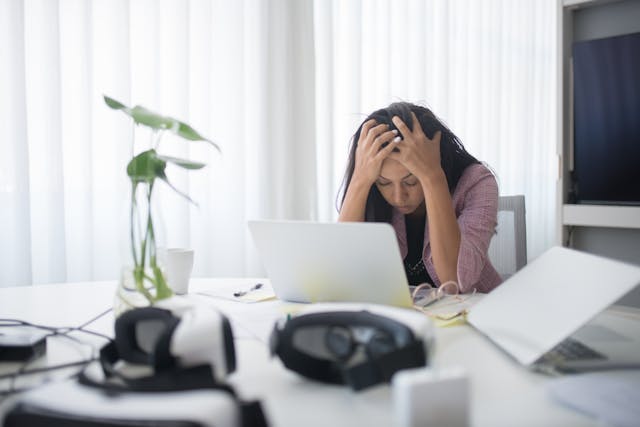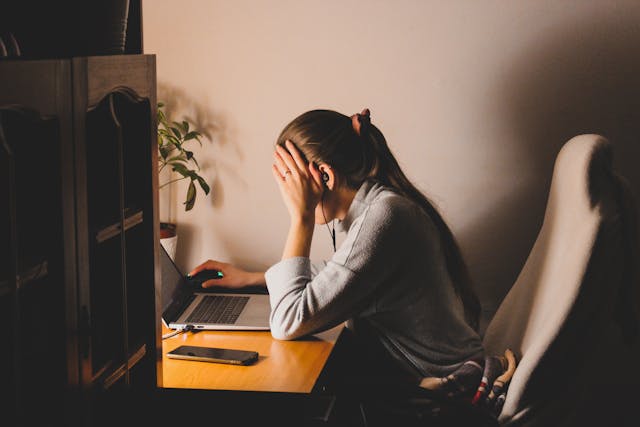From the moment we wake up to the minute we fall asleep, screens are part of nearly every aspect of our lives. We check our phones before brushing our teeth, answer emails during breakfast, and scroll through social media before bed. The world has become so hyper-connected that the line between our digital and physical lives is nearly invisible.
What is digital fatigue?

Digital fatigue refers to the sense of tiredness, stress, and burnout that comes from excessive use of digital screens and online platforms. It manifests as decreased concentration, irritability, anxiety, and even physical symptoms such as headaches or eye strain.
According to a 2024 report from Deloitte, over 60% of remote workers report feeling “digitally exhausted” due to constant video calls, endless notifications, and blurred boundaries between personal and professional time. The same study found that 45% of Gen Z respondents felt their mental health worsened due to excessive digital engagement.
The causes of digital overload
We are not just using technology — we are living inside it. Here are some of the main contributors to digital fatigue:
Constant notifications
Our devices are designed to grab our attention. Every ping, buzz, and banner activates a dopamine response, reinforcing a habit of checking our phones hundreds of times per day. In fact, the average person touches their smartphone over 2,600 times daily according to a study by Dscout.
Endless content consumption
With platforms like TikTok, YouTube, and Instagram offering infinite scrolling, we rarely experience true mental rest. This leads to what psychologists call “information fatigue syndrome” — a state of stress caused by too much data to process.
Remote work and zoom fatigue
After the pandemic normalized remote work, many people now spend entire days jumping from one video meeting to another. Eye contact through a screen, delayed audio, and the need to appear constantly “engaged” make video calls mentally taxing. Researchers at Stanford University have even coined the term “Zoom fatigue” to describe this phenomenon.
Lack of digital boundaries
Emails at midnight, Slack messages during dinner, and notifications during family time blur the separation between work and rest. The result? A 24/7 connection loop that erodes well-being and productivity.
The impact on mental health and productivity
Excessive digital exposure doesn’t just cause mental exhaustion — it affects how we think, feel, and perform. Studies from the American Psychological Association (APA) show that prolonged screen time increases stress, reduces empathy, and disrupts sleep patterns.
Productivity also suffers. Multitasking across apps and notifications decreases focus and can reduce cognitive performance by up to 40%, according to research by the University of London. What feels like “being busy” is often just fragmented attention — leaving us less creative and more drained.
Signs you might be experiencing digital fatigue
- Difficulty concentrating or maintaining focus during non-digital tasks
- Increased irritability when disconnected or facing tech issues
- Sleep disturbances due to blue light exposure and nighttime scrolling
- Eye strain, headaches, or physical tension after long screen use
- Feeling “always on” or anxious when away from devices
If these symptoms feel familiar, it may be time to rethink how technology fits into your daily rhythm.
How to combat digital fatigue
Beating digital fatigue doesn’t mean abandoning technology — it’s about creating a healthier digital balance. Here are some science-backed strategies:
Schedule regular digital breaks
Follow the 20-20-20 rule: every 20 minutes, look away from your screen for 20 seconds at something 20 feet away. This helps prevent eye strain and mental burnout.
Turn off non-essential notifications
Silence or disable alerts that don’t require immediate attention. This small change can significantly reduce stress and increase your sense of control.
Create tech-free zones
Designate areas like the bedroom or dining table as screen-free spaces. This encourages presence, real conversation, and better sleep hygiene.
Practice digital mindfulness
Be intentional with your online time. Ask yourself: “Is this activity adding value to my day, or am I just scrolling out of habit?” Mindful use of technology enhances focus and emotional regulation.
Try a digital detox
Once a week, disconnect entirely for a few hours. Studies from the University of Bath (2023) show that participants who took a short social media break reported higher life satisfaction and lower stress levels.
Can we redesign our digital lives?
Tech companies are increasingly aware of the burnout their platforms can cause. Apple’s “Screen Time,” Google’s “Digital Wellbeing,” and other tools now help users track and limit device use. Meanwhile, movements like the “slow tech” and “digital minimalism” trends encourage people to choose quality of engagement over quantity.
Experts believe the next wave of innovation will focus less on keeping us glued to screens and more on supporting our mental and emotional well-being. The rise of AI assistants, for example, could automate routine digital tasks, freeing us for more creative or meaningful activities.
Finding balance in a connected world

We are not powerless in the face of technology. By setting clear boundaries and adopting mindful digital habits, we can enjoy the benefits of connectivity without succumbing to its downsides. Digital fatigue is a symptom of imbalance, not inevitability.
As we move deeper into the 2020s, the challenge is not how to live without technology — but how to live well with it.
In an age where our attention is the most valuable currency, protecting our mental clarity might just be the most revolutionary act of all.
